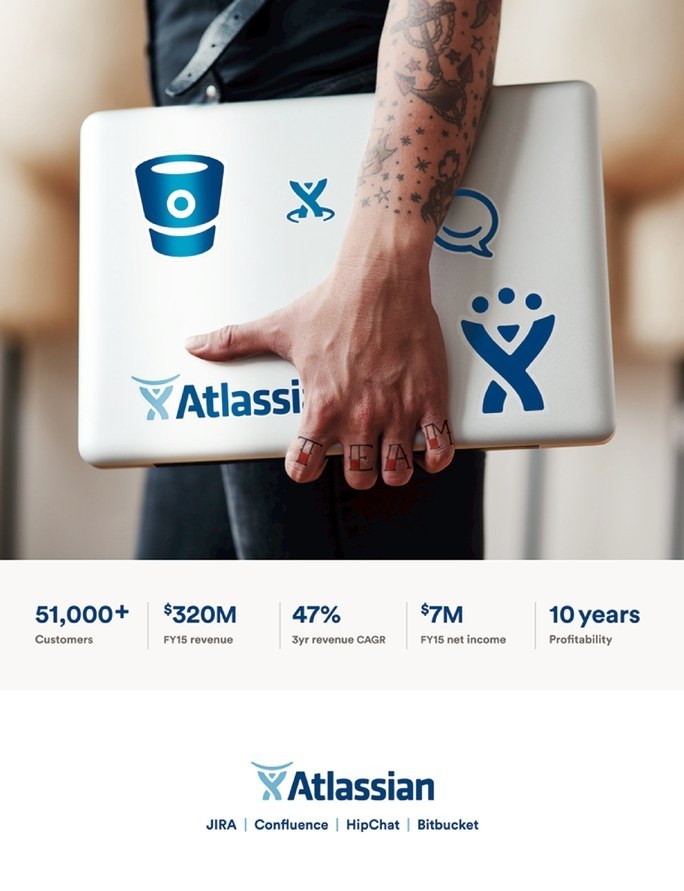
An Australian software maker has pulled off what has become a rare tech industry feat: An IPO with shares priced higher than initially expected, for a company that is profitable and growing, and which saw a healthy pop in trading on its first day on the market.
Atlassian rose 32% on its first day of trading on the Nasdaq Thursday, giving it a market value of almost $6 billion.
The company, headquartered in Sydney, makes software that is largely aimed at other tech companies and tech workers. Messaging service Hipchat is probably its best known product, but the company says over two-thirds of its revenue comes from JIRA and Confluence, tools widely used by software developers.
Here are five things worth knowing about one of 2015's most successful tech IPOs.
*Note: Atlassian makes enterprise software, which is boring, so this post will be illustrated entirely with Australian animals.

1. Atlassian is old, and unusual.
The company is also ancient relative to most startups approaching an IPO — it was founded in 2002.
Its rise to a multibillion-dollar public company didn't just take a long time, it also didn't follow the typical Silicon Valley funding model. Rather than raising money by selling off chunks of stock at increasing valuations, it was largely "bootstrapped," funding its growth with its own revenues.
The only outside investors in the company bought their shares from its employees — not a common situation for the big Silicon Valley startups. Accel Partners, the San Francisco venture capital firm, is the largest outside investor, with a stake of over 10%.

2. It's a star tech IPO in a year that didn't have many.
2015 was a grim year for tech companies going public — or more accurately, not going public. The flood of private money into startups means many can raise enormous amounts of cash without needing to go to the stock market.
28 tech companies have gone public so far this year, down from 62 last year, according to Dealogic. And the companies that have gone public have tended to underperform the expectations they set for themselves in the IPO process — according to Dealogic, a quarter of tech IPOs have priced below their initial price range, up from 16% last year.

3. Unlike many trendy startups, this one makes money.
Atlassian has been profitable in each of the three years it has reported financial results, and in its most recent quarter it made a $5 million profit on $102 million in revenue. The company says it has been profitable for ten years.
Total revenues have grown from $149 million in 2013 to $320 million in the 2015 fiscal year.

4. But it still has techie roots.
Don't let long-term profitability fool you: Atlassian is still very much a tech company, even if an idiosyncratic one. The first image in its prospectus is a man wearing jeans and a black t shirt, holding a Atlassian-stickered laptop with the word TEAM tattooed on his knuckles. (The company is listed on the Nasdaq under the ticker "TEAM").
And one beneficiary of its quick growth has been its charitable foundation, which receives "1% of employee time, profit, and equity." This is borrowed straight from Salesforce's "1-1-1" corporate philanthropy model.


5. Atlassian software is widely used at big companies.
The company boasts a large number of smaller businesses that it reaches without much in the way of sales and marketing. Its target market of engineers and software developers are famously hostile to salespeople — "we believe software is bought, not sold," the company says in its IPO documents.
But at the top end of the market, Atlassian says 79 of the Fortune 100 companies and 273 of the Fortune 500 companies use its software. Overall the company boasts 51,000 customers.
